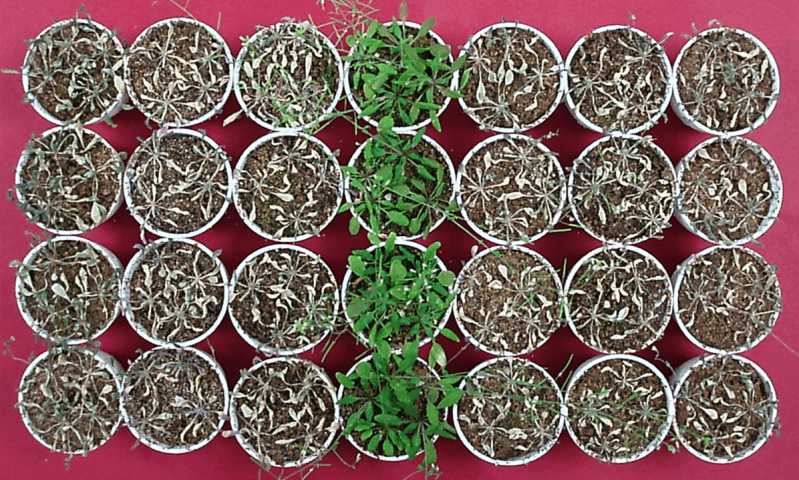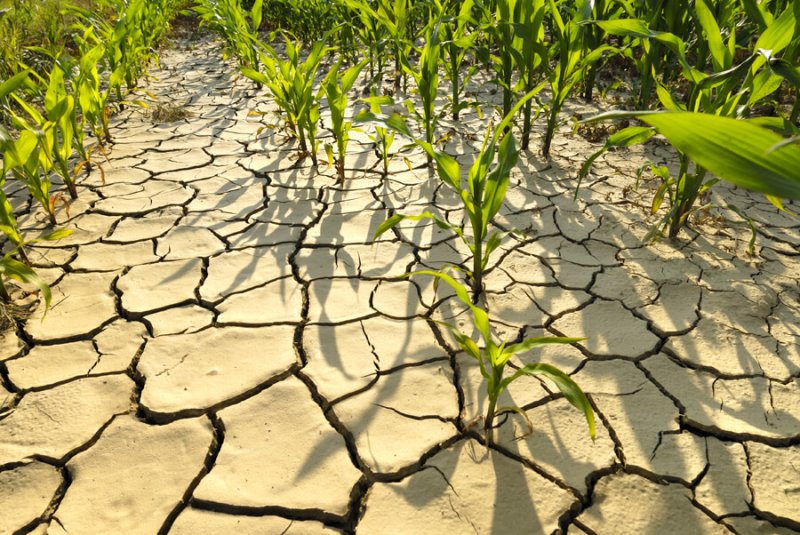Researchers at the RIKEN Center for Sustainable Resource Science (CSRS) have discovered a new, yet simple, way to increase drought tolerance in a wide range of plants. Published in Nature Plants, the study reports a newly discovered biological pathway that is activated in times of drought. By working out the details of this pathway, scientists were able to induce greater tolerance for drought-like conditions simply by growing plants in vinegar.
…
Not only did they discover that external application of vinegar can enhance drought tolerance in the Arabidopsis plant, but they also found that this pathway is regulated epigenetically and conserved in common crops such as maize, rice, and wheat.
…
These results predicted that increasing the amount of acetate in plants could help them survive drought. The team tested this hypothesis by growing normal plants in drought conditions and treatment with acetic acid, other organic acids, or water. They found that after 14 days over 70% of the plants treated with acetic acid had survived, while virtually all other plants had died.
[Read the full study (behind paywall)]

[Read the full study (behind paywall)]
The GLP aggregated and excerpted this blog/article to reflect the diversity of news, opinion, and analysis. Read full, original post: Vinegar: A cheap and simple way to help plants fight drought































